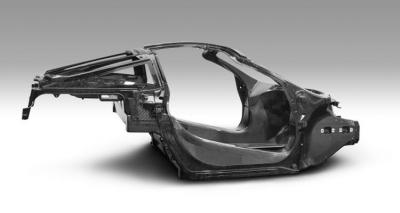During a McLaren press conference at the 2017 Goodwood Festival of Speed in the U.K., Chief Financial Officer Paul Buddin said the company’s new plant in Sheffield, England, building McLaren’s next-generation carbon-fiber tubs will have an annual capacity of 10,000 monocoque chassis by the end of 2019.
That number caught the ear of a number of automotive news outlets, including CarBuzz and Car and Driver, especially since McLaren had also claimed its target goal was to build 5,000 cars annually by the end of the decade. The discrepancy between 5,000 cars and 10,000 monocoque chassis, both outlets reported, is a result of McLaren’s desire to make room for any future sales expansion.
“It would be very short-sighted to limit ourselves to 5,000 cars,” McLaren CEO Mike Flewitt explained.
Flewitt also hinted that McLaren is considering using the Sheffield plant to build carbon fiber monocoque chassis for other car manufacturers looking to build limited-run performance cars.
“We won’t do it until we’re fully up and running ourselves, but it is something that we are considering as an obvious expansion.”
One of the innovations that will make this possible is the increase of automation. Back in March, new broke that McLaren aims to completely automate the carbon fiber production process its uses to create the lightweight “tubs” around which it builds its supercars. To do so, McLaren ended its contract with Austria’s Carbo Tech and moved the work to Sheffield. The production process at Carbo Tech, which also made the body for VW’s XL1 eco-car, is only 20 percent automated. McLaren wants to push that to 100 percent, allowing the British automaker to increase production to 20 to 25 cars a day, up from 15 now. The plant produces McLaren’s 720S supercars, the first of which has already rolled off the production line.
| A Composites Manufacturing release || July 17, 2017 |||





